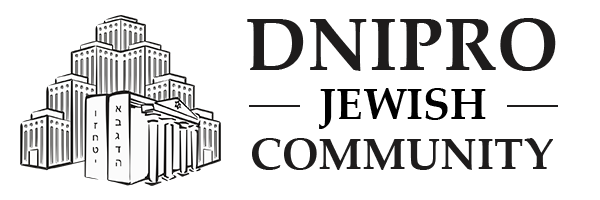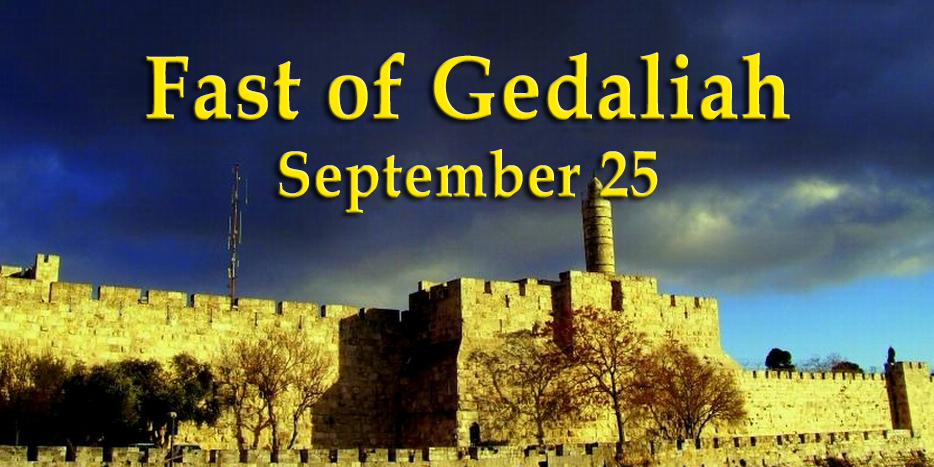On the day of September 25th, Thursday, Jews around the world fast for the entire daylight hours in memory of the assassination of Gedaliah, the governor of Judea during the time of King Nebuchadnezzar. The fast day is the first non-festive day following Rosh Hashanah – that is, the 3rd of Tishrei.
This year, the fast begins for Dnipro at 04:52 AM and ends at 07:03 PM.
The fast was established in memory of events that occurred almost two and a half thousand years ago. As is known, King Nebuchadnezzar of Babylonia, while waging war against Egypt, repeatedly captured Judea, whose rulers maintained a pro-Egyptian orientation. The first time, in 605 BCE, Judea was conquered, but the Babylonians preserved its independent administration, king, and state status. Seven years later, Judea sided with Egypt. The Babylonians captured the Jewish king Jehoiachin and ten thousand members of the national elite, including military personnel, weaponsmiths, and court officials. Zedekiah was appointed king of Judea, but now in the status of a governor.
Six years later, Zedekiah led another rebellion, compromising himself as an ally of Egypt. The Babylonians crushed Judea; after a two-year siege, Jerusalem was captured, the First Temple was destroyed, the king fled through a cave (now a tourist attraction) but was caught, blinded, and his sons were executed, thus ending the four-hundred-year reign of the Davidic dynasty. A vast number of people were taken captive, primarily from the upper classes.
However, Nebuchadnezzar did not want to destroy Judea and the Jewish people; he allowed people of the lower classes to remain on their land to engage in agriculture and crafts. Nebuchadnezzar appointed Gedaliah, the son of Ahikam, a wise and just man and a friend of the prophet Jeremiah, as the governor of Judea.
Gedaliah vigorously encouraged the cultivation of fields and vineyards, and the Jewish community began to revive. This became known, and many Jews who had fled to safe places in neighboring countries during the war began to return. Governor Gedaliah urged the people to remain loyal to Babylonia and promised peace and security. It can be said that this promise was fulfilled – the Babylonian garrison stationed in the country did not harm the Jews and even protected them from hostile neighbors.
However, the peaceful development of Judea was not to everyone’s liking. Among those who returned to the country was Ishmael, one of the princes of the Davidic line, who, like his relatives, maintained a pro-Egyptian orientation. Having prepared and found allies, he attacked Gedaliah on the second day of the New Year 3339 according to the Jewish calendar, killed him and many of his supporters, and also slaughtered the small Babylonian garrison stationed in the city of Mizpah.
The consequences for Judea were very severe – it lost the remnants of its independence. Nebuchadnezzar liquidated the very concept of the Kingdom of Judea, turning it into a Babylonian province, and took the inhabitants captive, except for those who fled to Egypt. However, this saved those who chose Egypt only for a short time; a few years later, Nebuchadnezzar invaded Egypt, during which most of the Jews perished.
Gedaliah remains in history as a wise politician who pursued not immediate political (or “geopolitical”) goals but sought to ensure the main thing – a Jewish presence in the land of Israel. His death and the misfortunes brought upon everyone by those who wanted to participate in the game on the “chessboard” became the final chord in the chain of tragedies associated with the destruction of the First Temple and a stern warning to future generations.
A fast was established in memory of Gedaliah’s death. However, since Gedaliah was killed on the second day of Tishrei, which has the status of Yom Tov, the fast in memory of those events is observed on the 3rd of Tishrei, and in cases where the 3rd of Tishrei falls on Shabbat, the fast is postponed by one more day.
May you have an easy fast, dear readers!




